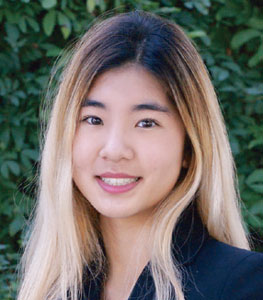
Lianne Cha / Oxford Academy 11th Grade
No president can please everyone. From family scandals to racist remarks, president-elect Joe Biden has come under fire throughout the 2020 presidential election for mistakes made in the past. For example, in a hearing before the Senate Judiciary Committee in 1977, Biden spoke against mandatory busing to desegregate schools by saying that it would cause his children to grow up in a “racial jungle.” In 1994, Biden supported the crime bill that led to a large increase in the prison population in the United States, reaching up to 1.6 million people in 2009 [1]. However, since then, over forty years have passed, and he has taken a platform against racism by creating the Build Back Better Agenda [2] through which he plans to support racial equality.
In his plan, he outlines seven major steps:
1. Ensure His Housing Plan Makes Bold Investments in Homeownership and Access to Affordable Housing for Black, Brown, and Native Families
2. Achieve Equity in Management, Training, and Higher Education Opportunities Connected to the Jobs of the Future
3. Boost Retirement Security and Financial Wealth for Black, Brown, and Native Families
4. Ensure Workers of Color Are Compensated Fairly and Treated With Dignity
5. Strengthen the Federal Reserve’s Focus on Racial Economic Gaps
6. Promote Diversity and Accountability in Leadership Across Key Positions in All Federal Agencies
7. Address Longstanding Inequities in Agriculture
Despite this plan, it has come into question whether Biden’s past mistakes would affect his decisions in his upcoming presidency. More so, his past mistakes may cause distrust from the American people, and there is bound to be civil unrest when the people do not agree with their leader. In fact, many state constitutions, including that of California, say that political power is held in the people, so when the government is not to their liking, the people have the right to “alter or reform it when the public good may require.” [3]
Especially in a world where the public image of a candidate matters just as much--or even more than--their actual policies, past mistakes matter in the present and can be dangerous to both the candidate and the country.
Rachel Yang, a sophomore from Diamond Bar High School, warns that “politically speaking, mistakes define a person because people only see what’s on the outside and what’s shared through the media. I think [Biden’s] mistakes matter because his mistakes and bad relationships with other people or countries may cause problems to our country.”
On the other hand, Connor Kim, a sophomore from Troy High School, disagrees. “I think that change is inevitable and saying that people can’t change is unreal. Many people who have been involved in malicious events usually would change for the better eventually. As Biden becomes inaugurated and into president, I feel like he will mentally mature more from the whole weight of the country on his shoulders and learn from all these mistakes he made in the past,” he says.
[1] https://www.usatoday.com/story/news/factcheck/2020/10/27/fact-check-post-partly-false-biden-1977-racial-jungle-remark/6045749002/
[2] https://joebiden.com/racial-economic-equity/#
[3] http://home.hiwaay.net/~becraft/AlterRight.html
“Yes, I definitely think people can change. People learn from their mistakes, and those experiences may help those people to grow as a person. However, politically speaking, mistakes define a person because people only see what’s on the outside and what’s shared through the media. Yes, I think his [Biden’s] mistakes matter because his mistakes and (bad) relationships with other people or countries may cause problems to our country.” - Rachel Yang, Diamond Bar High School, 10
“I think that change is inevitable and saying that people can’t change is unreal. Many people who have been involved in malicious events usually would change for the better eventually. As Biden becomes inaugurated and into president, I feel like he will mentally mature more from the whole weight of the country on his shoulders and learn from all these mistakes he made in the past.” - Connor Kim, Troy High School, 10
<
Lianne Cha / Oxford Academy 11th Grade>

